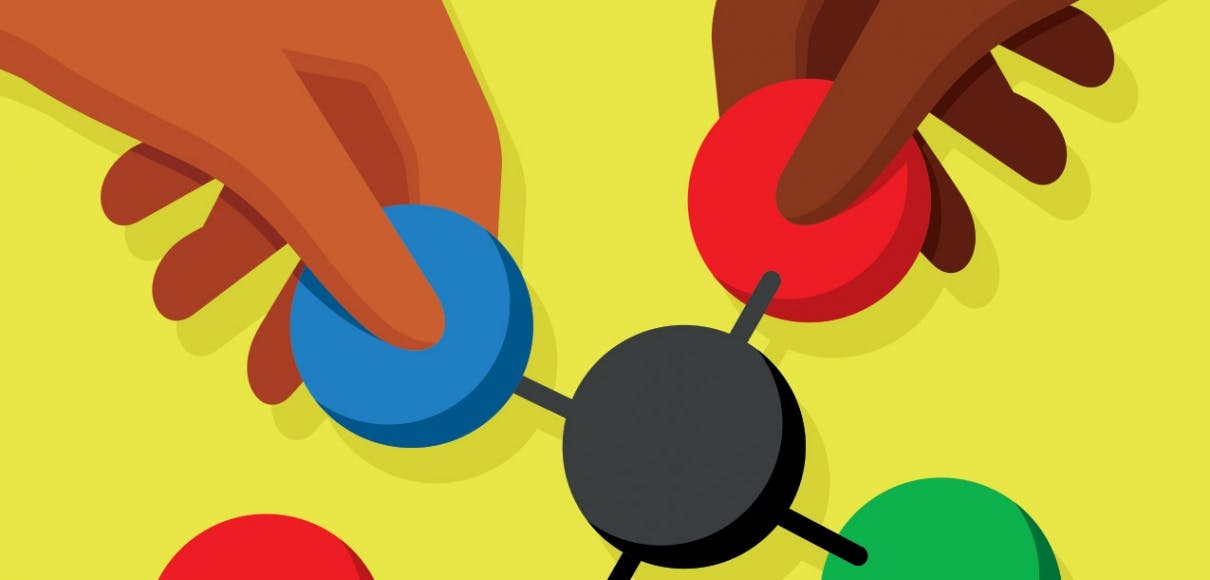When senior biochemistry major Leslie Rodriguez-Salas applied for the Seattle Pacific Biology Department’s BioCORE Scholars program in 2015, she was looking for a community that would encourage her academically and understand her college experience as a Latina.
 “I thought it would be a good opportunity to make connections,” she said. “Now, this is one of the most important experiences I’ve had at SPU.”
“I thought it would be a good opportunity to make connections,” she said. “Now, this is one of the most important experiences I’ve had at SPU.”
Since 2016, the BioCORE Scholars program has provided academic and social support to first-generation college students and students of color, groups that are traditionally underrepresented in biological and biomedical sciences. The program aims to create a community that validates these students’ diverse perspectives by connecting them with one another and with leaders in the field who have similar backgrounds. BioCORE Scholars was initially funded by a grant from the provost’s Innovation Fund, but now is funded by individual donations.
This year, the program accepted 15 students — its largest cohort yet. Those students will take the two-year general biology sequence alongside weekly workshops led by trained student-learning assistants, interact with peer mentors, and attend networking events with scientists who are people of color or first-generation college graduates. The summer after their first year, they will work with faculty on weeklong research projects.
In 2017, only 6 percent of U.S. residents who earned doctoral degrees in biological sciences identified as Latino or Hispanic, according to the National Science Foundation. Seventeen percent of the general U.S. population and 21 percent of 18- to 24-year-olds are Latino. Black, Native Alaskan, and American Indian populations are also underrepresented in STEM graduate programs.
“We are trying to redress the balance so that representation in these fields truly reflects the U.S. population,” said Elena Brezynski, assistant professor of biology. “This is a matter of Christian social justice.”
“We are trying to redress the balance so that representation in these fields truly reflects the U.S. population…” — Elena Brezynski
Outcome data from the first three years of the BioCORE program show that students enrolled in the program are more likely to stay enrolled at SPU and to have higher GPAs relative to their peers who are not in the program.
Rodriguez-Salas, whose parents immigrated to the U.S. from Mexico, felt more alone than she expected when she moved to Seattle from Park City, Utah. The BioCORE Scholars program helped her find a community and stick with SPU through that transition, she said. Rodriguez-Salas is this year’s BioCORE learning assistant, and she plans to graduate in June.
Diana Cabrera ’17, one of the program’s first peer mentors, started her first semester of medical school this fall at the University of Texas Medical Branch.
Cabrera said the relationships and leadership experience she gained through the BioCORE program prepared her for a job as a clinical services representative at Virginia Mason Hospital in Seattle last year and helped her craft strong applications for medical school.
In 2006, Cabrera and her family emigrated from Mexico City to Los Fresnos in southern Texas. Her community there was similar to the community in Mexico City — 88 percent of the population is Latino and 81 percent is from Mexico, according to the 2010 U.S. Census. SPU’s predominately white campus was a new experience for Cabrera, and the BioCORE program connected her with other students who shared her perspective.
“I grew up in a culture where family is the biggest blessing God can give you,” Cabrera said. “Away from home, family extended to my friends, and the BioCORE Scholars program was my support system.”
“Away from home, family extended to my friends, and the BioCORE Scholars program was my support system.” — Diana Cabrera
Derek Wood, professor of biology and chair of the Biology Department, sees this as a pilot program for other campus initiatives to invest in students who might feel marginalized on campus. BioCORE Scholars invests in students partly by including them in faculty research and scholarship.
“The big thing that works about the research component of BioCORE Scholars is that you bring students into your scholarship, and you allow them to do it with you,” Wood said. “Students can see themselves as professionals.”
Learning assistants and peer mentors are trained by Mary Jayne Allen, assistant director of SPU’s Center for Learning, and Kara Gray, associate professor of physics. Often, mentoring conversations range beyond core course concepts. In a program assessment, one scholar wrote that “the learning assistant encouraged us and made us aware of our capabilities.”
“If they have questions about applying to med school, or if they just need someone to vent to about their classes, peer mentors are there for them,” said Lindsey Quintana ’16, who identifies as black, Latina, and Korean, and was the program’s first learning assistant. “My role was interpersonal — we formed a little family.”




